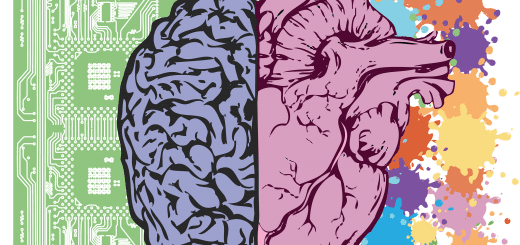Online Diagnosis Tools: Helpful or Harmful?
 Something I’ve been thinking about recently is the role the internet plays in diagnosis of mental health issues. There are plenty of self tests for mental illnesses on a variety of websites. But are they accurate? People often joke about WebMD saying they have cancer no matter what they enter into the surveys, and that just checking the site causes more anxiety. Such websites can be harmful for people with mental illnesses like OCD who worry excessively about health, but can they also be helpful? In this blog I will lay out the pros and cons of online diagnosis tools for mental illness, along with some tips for those who decide to use these resources.
Something I’ve been thinking about recently is the role the internet plays in diagnosis of mental health issues. There are plenty of self tests for mental illnesses on a variety of websites. But are they accurate? People often joke about WebMD saying they have cancer no matter what they enter into the surveys, and that just checking the site causes more anxiety. Such websites can be harmful for people with mental illnesses like OCD who worry excessively about health, but can they also be helpful? In this blog I will lay out the pros and cons of online diagnosis tools for mental illness, along with some tips for those who decide to use these resources.
Some benefits of online diagnosis tools for mental illness:
- Some mental illnesses, such as intrusive thoughts in OCD, can be shameful to talk about, causing people to avoid seeking help. Thus online tools can be helpful by allowing them to find a diagnosis without having to say their thoughts out loud.
- Some people worry that their issues are not “bad enough” to warrant seeking help or they are too cautious to contact a therapist out of fear that they are overreacting. Sometimes a quick internet survey can help them realize that they do need help.
Some costs of online diagnosis tools for mental illness:
- Online diagnosis tools could possibly make people less likely to speak to a real therapist, especially if the results of the survey are that they do not have the mental illness.
- Online diagnosis tools could increase stigma if badly done. An example are quizzes about “How OCD are You?”
Tips for people who decide to use online diagnosis tools:
- Check the sources. This may seem obvious, but sometimes mental distress can cloud our judgement, so it is always important to critically judge any website before you take an online mental health test. Who made the quiz? Was it made by therapists or someone random? Think about the purpose of the website. Websites meant for entertainment like Buzzfeed and All The Tests are generally not reliable sources for mental health information.
- Trust your gut. If a quiz tells you nothing is wrong, but you feel bad, talk to a professional. Although quizzes can be helpful for some people to understand their struggles, they cannot replace a doctor or trained therapist.
- If you are going to try to diagnose yourself, look at more than one source.
- Read the quiz and ask yourself, “Do these questions sound professional?”
The bottom line:
Online diagnosis tools can be helpful for people with mental illness, particularly those who are cautious enough to seek help and/or feel shame that prevents them from talking to a professional. However, not all online quizzes are accurate. Online tests can be used as a first step in the process of finding treatment, but should not be used alone to draw conclusions. Trust your gut. If you feel like something is wrong, seek professional help, no matter what an internet quiz tells you.
No online survey can get enough information from you to know the whole picture, and even if you don’t have a diagnosable mental illness, that does not mean that you do not deserve or would not benefit from professional help. Don’t draw conclusions from just one source. No online quiz can replace a professional opinion—do not let any online source replace a therapist.
Lastly here are some examples of reliable and unreliable online tests:
Unreliable:
http://www.allthetests.com/quiz19/quiz/1143939914/How-anorexic-are-you
https://www.quotev.com/quiz/183969/How-psychotic-are-you
http://www.playbuzz.com/monicawoods10/how-sensitive-is-your-ocd-radar
Good options:
http://screening.mentalhealthamerica.net/screening-tools




Recent Comments